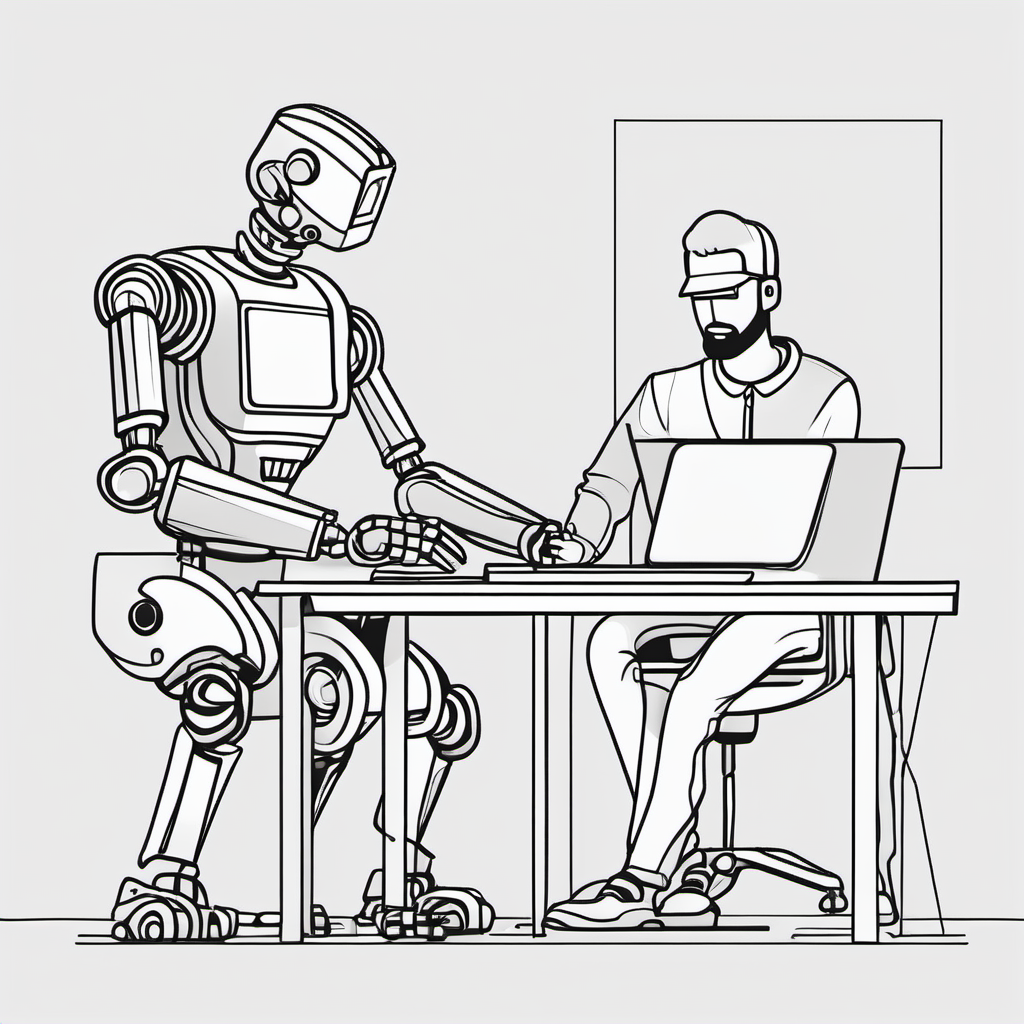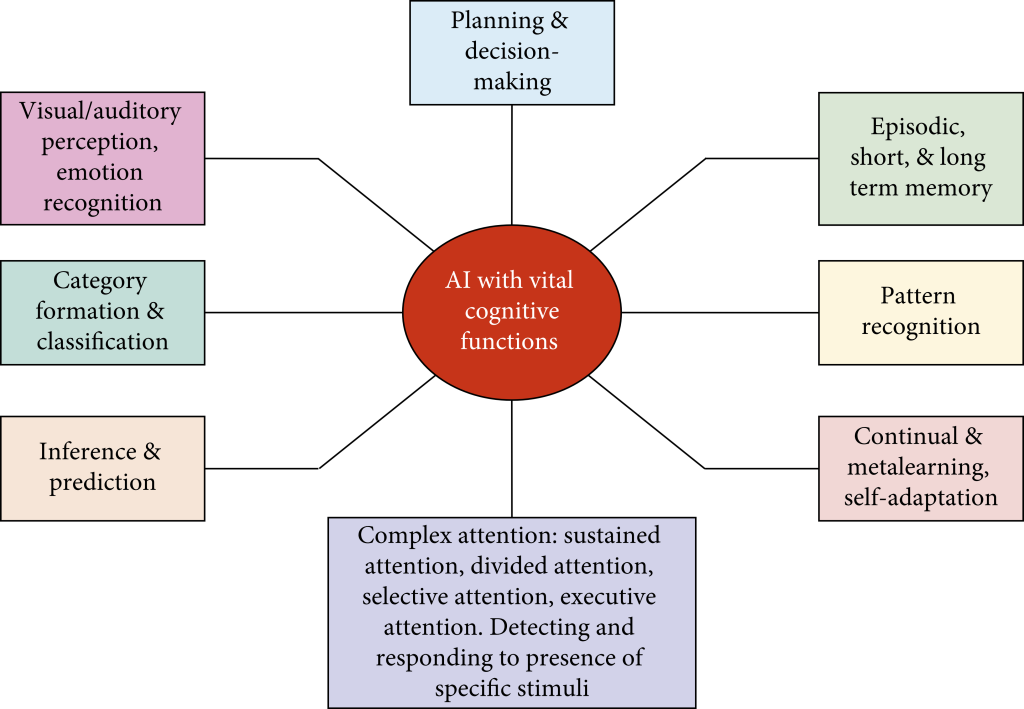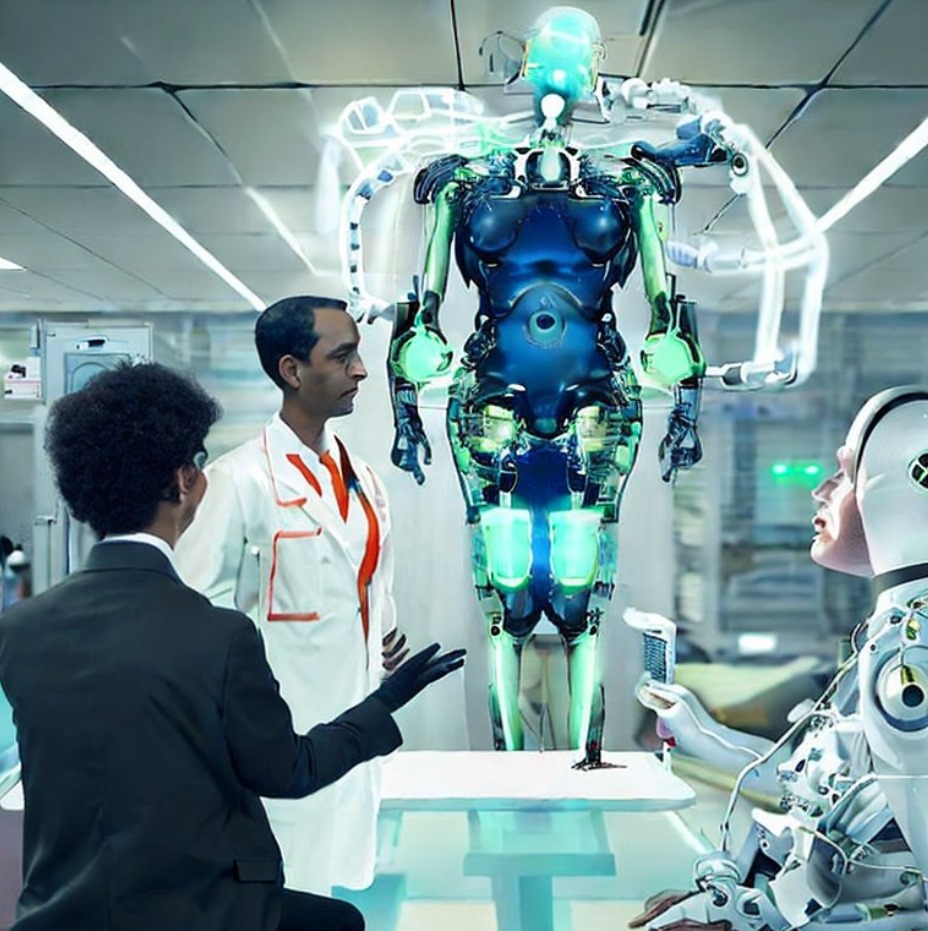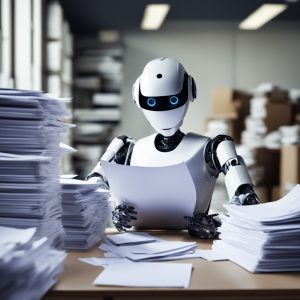AGI in the Future Workplace
In envisioning the future of work in the era of Artificial General Intelligence (AGI), there exists apprehension among individuals regarding the potential displacement of their employment roles by AGI or AI in general. AGI is an artificial general intelligence that can be used in different fields, as it is defined at the most basic level as an AI system that can perform any complex task a human is capable of.
AI will create more jobs and lessen the load for us all: It is without a doubt that some jobs will be replaced by AI or AGI, but there will also be a myriad of new jobs continuously emerging from evolving AI. We assume that AGI is imminent, whether ten years, twenty, or longer, we should start preparing the general population now and the healthcare industry is a great place to begin.

Human-AGI collaboration
As described in the Future Jobs in AI era, there is a shortage of skilled workers. This is particularly true for computer-related occupations and jobs in science, technology, engineering, and math. The demand is unmet, however, the urge to improve efficiency through automation exists in many sectors. Almost all fields of industry are in need of automation and intelligence, and an AGI could help fill the gaps and increase production as well as the overall human experience by giving us back the one resource we can’t buy: time. AGI will create the potential for new jobs such as AI trainers, prompters, mechanics, and more. For example, the need for sentiment analyzers is crucial to mediate the need for interpreting the human condition/emotion to our counterparts during the general workday, as well as helping us with a better work-life balance.
At the individual level, as with all revolutions, the workers being displaced will be re-educated to maintain, supervise, and fill in the gaps where the AGI has not been initiated or normalized yet. If AGI takes a custodian’s role, they can be trained for supervising, security, or re-educated for maintenance. If an AGI fills a nurse’s role, the others on the floor will have a smaller caseload of patients to look after, and everyone benefits. Healthcare professionals will still be needed to speak to people’s fears, to provide one-on-one care, and having an extra set of hands means that these people won’t be overworked, that there will be a decrease in misdiagnoses, and a more efficient scheduling that will prevent misuse of the workers’ time.
The collaboration: An AGI could have cognitive skills, attentional intelligence, and even empathy. Put in the context of collaboration, AGI could hold meaningful social interactions with its users and coworkers. Social skills are important in terms of collaboration, and with the current state-of-the-art AI, it cannot detect emotion, as it does not have social and self-awareness. But with the concept of AGI, these all can be possible in the near future, including an AGI that borrows your coffee mug before it learns that you prefer not to share.

The eight core cognitive skills important for future AGI systems.
AI/AGI can also replace jobs in service areas, assembly lines, and repetitive tasks before we start integrating it into more complex human roles such as doctors or nurses. Automating tasks was the solution and for many years as machines replaced people in those roles: new ones were born out of need, and people were forced to seek higher education to progress society, as is the case today. Based on history and current research, society shouldn’t focus on the fears of worker displacement, however, if we are cohesively working toward a better future for all: a solution to the displacement issue could be Universal Basic Income (UBI.) This could give relief to workers while they figure out which roles they want to fill in society as their income is supplemented while those jobs are replaced so they can better themselves and progress society’s standards for all.
Healthcare or Health Scare
The healthcare sector is essential, particularly with the anticipated emergence of AGI, so let’s dive into a little more detail with our main example. Currently, healthcare workers face expedited rates of burnout, aging out, and increasing demand for chronic and elderly care, yet we have not fully embraced the available AI algorithms to address the ongoing healthcare crisis. The projected shortage of qualified healthcare professionals is expected to rise to approximately 12.9 million by the year 2035, as stated by a report from the World Health Organization (WHO). Additionally, in 2018, a global health study indicated that 400 million individuals faced inadequate access to essential healthcare services, and more than five billion people worldwide lacked access to safe and affordable surgical treatments when required. An international review of the significant deficits in workforce availability highlights five primary concerns following the recent global pandemic: concerns about contracting illnesses through exposure, psychological stress, socio-demographic factors, poor working conditions, and a clear absence of organizational support.
Why are we not moving faster to address these issues now? We already have robot-assisted surgery, and provide multiple levels of technical and administrative support that is fully automated, the rest could be remediated with the help of AGI. Imagine having the ability to provide telehealth to everyone in need, closing the massive gap in essential mental health care for both workers and the general population, as well as normalizing working hours and conditions in various hospital settings and getting rid of the archaic requirements of long, overnight shifts. The human touch will still be relevant, as the purpose of the AGI should be regulated for focusing on triaging patients, while still allowing them the choice of AGI or human healthcare professional.

Since healthcare can be a manner of life or death, it is the patients who appear to be more afraid of the idea of AGI: people want to be acknowledged and heard, no matter who (or what) their nurse or doctor is. Assuaging a patient’s fears about having to be diagnosed by an AGI is something that will get normalized with time. As with any new technology, it can become commonplace fairly quickly, as we saw with the advent of LLM models such as ChatGPT. If we invest our time and energy in making sure the AGI is focused on fixing the needs of the current labor shortage, the process can be used as an example in other sectors, such as manufacturing. In terms of the ‘jobs lost,’ the current shortage speaks for itself, and it will only increase.
The Future and Beyond
What are the exact fears of AGI appearing at your work? From an individual level, yes, we can see that people in every field are afraid of displacement since automation has been replacing people’s jobs for hundreds of years. Does this mean we should just not bother to move society forward? The AGI isn’t coming to replace us, they are there to help us keep our sanity in an already stressful work environment, and let us have that much-needed coffee break.


